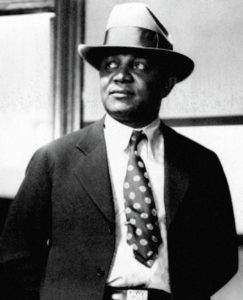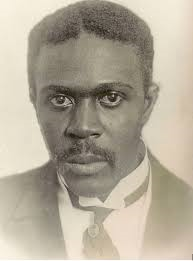
The Caribbean Genealogy Library will host a lecture, entitled “D. Hamilton Jackson and Casper Holstein: Early Collaboration in Fighting for Political Reform 1921-1927,” that will take place at 2 p.m., Sunday, April 21, in-person at the library, with a virtual option for attending via Zoom. The presenter will be Elizabeth Rezende, Ph.D.
In the years before the Transfer, two men rose to be leaders among their followers. They were both born in Christiansted of middle-class parents. David Hamilton Jackson (1884-1946) lived in the East End at East Hill School, and Casper Holstein (1876-1944) lived on Hill Street in Free Gut.
While they each were born into prosperity, there were innumerable recently freed laborers that had been emancipated and were forced by the Danish colonial government to work and live on the plantations as impoverished cane cutters.
Holstein, with his mother, migrated, as had thousands of others from the islands to New York to find greater opportunities for higher education, better jobs and living conditions. In New York Holstein met American-born Blacks who considered themselves superior and faced racism from whites that manifested itself in many ways, especially in getting a higher-paying job.
The lives of Jackson and Holstein intersected in 1915 when Jackson was in transit to Denmark where he had argued for a free press on St. Croix and was granted a license. While there, he visited labor unions, talked about strategy with their leaders and spoke to the membership in open-air meetings.
Jackson brought his new ideas to the New York diaspora, where he discussed and received their feedback in mass meetings.
Jackson saw the agricultural workers on St. Croix suffering with low wages and poor living conditions, controlled by the planters whose actions were reinforced by the Danish autocracy. His experiences led to the formation of the St. Croix Labor Union. Holstein experienced the double standard of racism for Blacks in New York. They were shut out of housing, jobs and businesses.

He formulated the Congressional Council in 1921 and brought its services to the islands. Over time, both organizations fought against injustices and for civil rights, which led to the quest for political rights for Virgin Islanders in the territory and in the United States.
The lecture on April 21 at the Caribbean Genealogy Library follows both men to 1927 as they worked together, each with his respective organizations, to fight by writing protest letters and testifying before Congress. Information for this presentation is gleaned from selected newspapers on St. Croix and New York.
Elizabeth ‘Betsy’ Rezende serves as president of the Society of Virgin Islands Historians and is a member of the St. Croix Friends of Denmark. She taught Virgin Islands history and English at the University of the Virgin Islands for over 28 years. She received her doctorate from Union Institute in Cincinnati, Ohio, and spent her post-doctorate year at the Center for Humanities and Social Sciences at Williams College, Williamstown, Mass.
This lecture is open to the public and is $5 for non-library members. Contact the library at caribgenlibrary@gmail.com for more information and with any questions.


